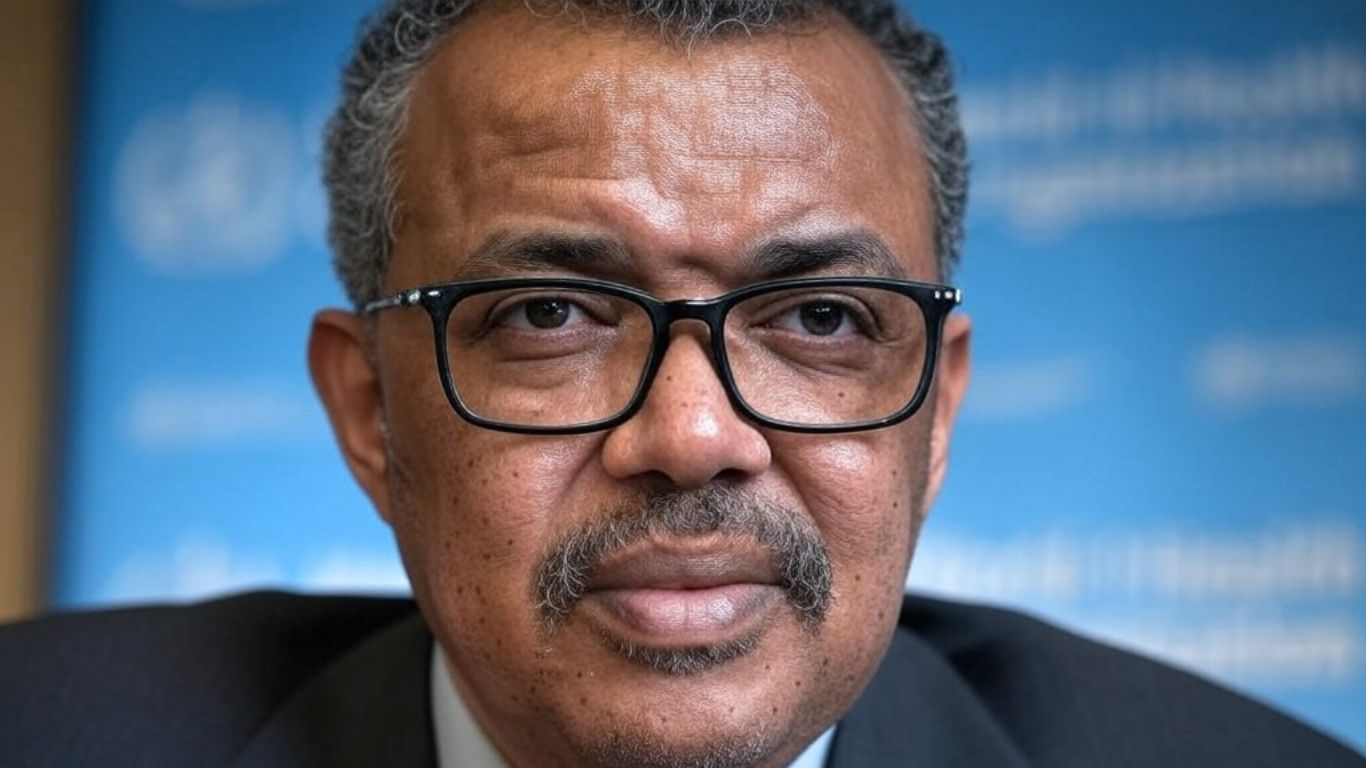World Health Organization (WHO) Director-General Tedros Adhanom Ghebreyesus revealed a harrowing experience as he narrowly escaped an Israeli airstrike on Yemen on Thursday. Sharing his ordeal on social media platform X, Tedros expressed relief at surviving the attack and thanked his colleagues and supporters for their concern.
Tedros Recounts the Ordeal
Tedros, who was in Yemen as part of his UN responsibilities, described the moments of terror during the strike. CCTV footage from the incident showed him calmly seated on a couch before an atmosphere of panic erupted, prompting his immediate evacuation.
Details of the Incident
- The explosion struck the departure lounge and control tower of Sanaa’s international airport, just meters away from where the WHO chief and his team were stationed.
- In an interview with BBC Radio, Tedros said:“We heard a heavy explosion nearby, and then repeated ones. The sound was so loud, so deafening. Even now, my ears are still ringing.”
- He added that the missile could have struck their location if it had deviated slightly, calling their survival a “matter of luck.”
Despite the chaos, Tedros and his team successfully evacuated a wounded colleague to Amman, Jordan, where they are now reported to be in stable condition.
Gratitude Amid Crisis
Expressing his gratitude, Tedros shared a heartfelt message:
“Thank you to all my friends, colleagues, and everyone who has wished me well during this ordeal. My heart goes out to our colleagues on the front lines and the civilians who face such danger every day.”
The WHO chief also commended the bravery of his colleagues and the airport staff who risked their safety to ensure his evacuation.
Context of the Airstrike
The Israeli airstrike targeted Sanaa’s international airport and other locations in Yemen, which the Israeli military identified as “rebel military targets.” The attack is part of an escalation following missile fire from Houthi rebels toward Israel.
Israel and Houthi Rebel Conflict
- The Houthi rebels, backed by Iran, have controlled large parts of Yemen since 2014, following the ousting of the internationally recognized government.
- The recent strikes come amid increasing long-range Houthi attacks on Israel, particularly after a ceasefire between Israel and Lebanon’s Hezbollah, another Iran-supported group.
Impact on Yemen
The airstrikes exacerbate the dire humanitarian crisis in Yemen, described by the United Nations as “the largest humanitarian crisis in the world.”
- 24.1 million people urgently require aid and protection.
- Years of conflict have devastated essential services, including healthcare, water, sanitation, and education.
Tedros’s Message to the World
Tedros concluded his statement with a poignant reflection on the challenges faced by civilians and aid workers in conflict zones:
“My heart goes out to all the civilians and our colleagues who face such danger every day. I am on my way back home to Geneva, but I will never forget the bravery and resilience I witnessed.”
A Reminder of Humanitarian Needs in Yemen
The incident underscores the precarious conditions for aid workers in Yemen and the urgent need for global attention and action. The country’s fragile ceasefires, ongoing conflicts, and escalating tensions with regional powers continue to worsen the humanitarian crisis.
As the world watches the developments in Yemen, stories like Tedros’s escape highlight both the dangers faced by frontline workers and the resilience required to operate in one of the most volatile regions on Earth.















